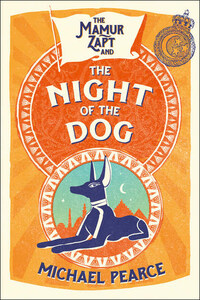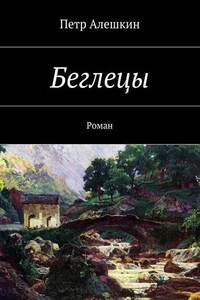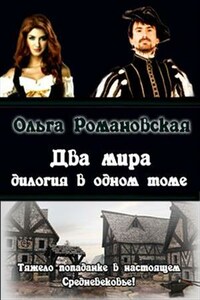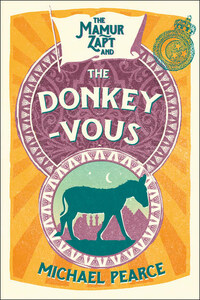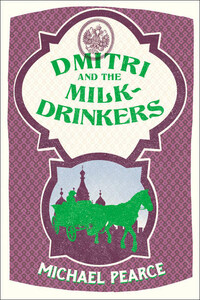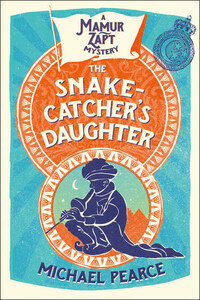HarperCollinsPublishers Ltd. 1 London Bridge Street London SE1 9GF
www.harpercollins.co.uk
First published in 1989 by Collins
Copyright © Michael Pearce 1989
Michael Pearce asserts the moral right to be identified as the author of this work
A catalogue record for this book is available from the British Library
This novel is entirely a work of fiction. The names, characters and incidents portrayed in it are the work of the authorâs imagination
All rights reserved under International and Pan-American Copyright Conventions. By payment of the required fees, you have been granted the non-exclusive, nontransferable right to access and read the text of this ebook on-screen. No part of this text may be reproduced, transmitted, down-loaded, decompiled, reverse engineered, or stored in or introduced into any information storage and retrieval system, in any form or by any means, whether electronic or mechanical, now known or hereinafter invented, without the express written permission of HarperCollins ebooks
HarperCollinsPublishers has made every reasonable effort to ensure that any picture content or written content in this ebook has been included or removed in accordance with the contractual and technological constraints in operation at the time of publication
Source ISBN: 9780008259457
Ebook Edition © SEPTEMBER 2017 ISBN: 9780007485024 Version: 2017-09-05
The Mamur Zapt would have treated it all as a joke if Nikos, his Official Clerk, had not been so insistent.
âGet out there quick,â he had said.
He had even volunteered to guide Owen to the Coptic Place of the Dead. Since Nikos was normally reluctant to take a single step outside his office, Owen had been impressed. Even so, if Georgiades had been around he might have sent him. Georgiades, however, was out on an errand of his own, or possibly still in bed. In any case, Nikos made it clear that he would not have approved.
âThis is something for the Mamur Zapt,â he said.
The Mamur Zapt was the Head of Cairoâs Political CID. Responsible in theory directly to Egyptâs ruler, the Khedive, he answered in practice only to the British Consul-General, the man who, since Britain had charge of Egyptâs purse strings, effectively controlled Egypt. The Consul-General, however, had taken pains not to define the Mamur Zaptâs role too closely, observing that the less he knew of the Mamur Zaptâs activities the more effective he was likely to be.
There were certain ground rules, however, and one of them was that the Mamur Zapt did not concern himself with routine police matters. Which he considered this to be.
âPolice?â said Nikos, as if he could hardly believe his ears. âWhat good would they be?â
Owen had to admit there was something in this. The Cairo police force was recruited from country districts and consisted for the most part therefore of simple fellahin, or peasants, illiterate, underpaid and, when they got to the city, usually quite lost. Their duties tended to be restricted largely to the regulation of traffic, which, since the latter consisted chiefly of donkeys and camels, was in Nikosâs view entirely appropriate. All real criminal investigation was left to the Parquet, the French-style Department of Prosecutions of the Ministry of Justice.
âThe Parquet, then?â suggested Owen hopefully.
âThe Mamur Zapt,â said Nikos definitely, and put on his tarboosh and walked out of the door.
Owen put on his tarboosh, too. Although he was still, strictly speaking, an army officer and merely on secondment, he considered himself now to be a civilian and preferred to dress in mufti. A tarboosh, the pot-like hat with a tassel which was the normal headgear of the educated Egyptian, was far less conspicuous than a sun helmet, especially of the heavy military sort. It was also cooler.
Not that that mattered too much this early in the morning. Later, when the sun was high in the sky and the temperature rose into the nineties, every little thing counted. Even the nature of your hat. At the moment, though, with the sun not long up over the horizon, the day was still pleasantly fresh and cool.
Owen borrowed a couple of constables from the orderly room at the front of the building and set out after Nikos.
They went on foot since their way lay through the mediaeval city, where the streets were too narrow and congested for a carriage to pass. This early in the morning the streets were not, in fact, very crowded. Almost the only people they saw were the black-gowned women drawing water for the day from the street pumps, but by the time they reached the Coptic Place of the Dead there were a lot more people around, and when Owen looked behind-him he found that Nikos was not the only guide. From somewhere or other they had acquired a sizeable following of small boys and old men and others who might have been on their way to work if something more interesting had not come along.
